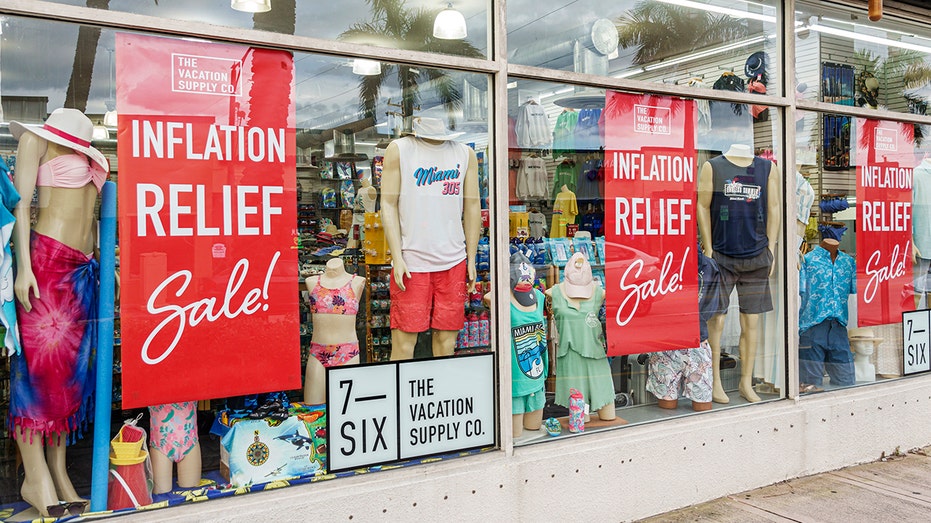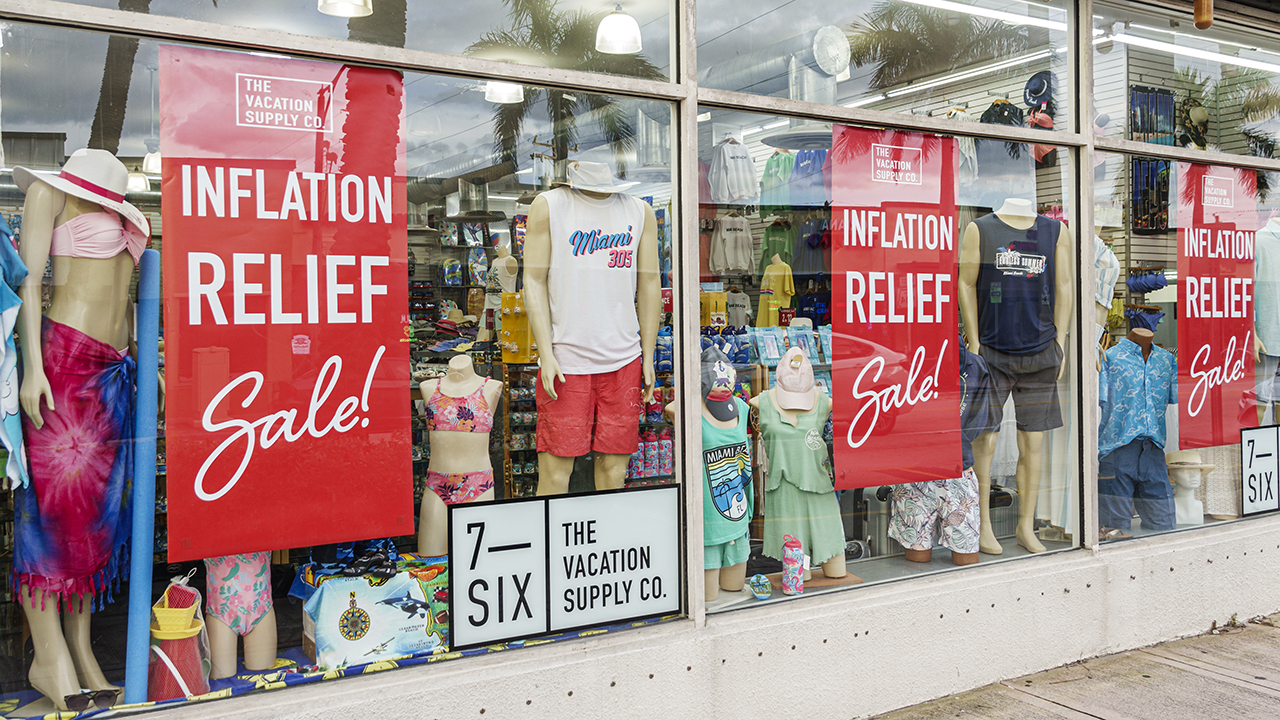Inflation rises 0.1% in November, slightly more than expected
Inflation eases in November, but high prices persist
Inflation is going in the right direction, former St. Louis Fed president says
Former Federal Reserve Bank of St. Louis James Bullard provides insight on the state of the economy on 'The Claman Countdown.'
Inflation continued to moderate in November as a steep drop in gasoline prices helped to offset increases in the cost of housing, medical care and transportation.
The Labor Department said Tuesday that the consumer price index, a broad measure of the price of everyday goods including gasoline, groceries and rent, rose 0.1% in November from the previous month, slightly more than expected.
Prices climbed 3.1% from the same time last year, which is in line with estimates by Refinitiv economists, and down from the 3.2% recorded in October.
Other parts of the report also pointed to cooling price pressures within the economy. Core prices, which exclude the more volatile measurements of food and energy, climbed 0.3%, or 4% annually. Both of those figures are in line with estimates from Refinitiv economists.
Still, the report indicates that while inflation has fallen considerably from a peak of 9.1%, it remains well above the Federal Reserve's 2% target.
401(K) HARDSHIP WITHDRAWALS ARE SURGING AS HIGH INFLATION SQUEEZES AMERICANS
"This fairly benign CPI report suggests that inflation is on a path to 2% barring an economic shock," said Oren Klachkin, Nationwide financial markets economist. "We expect cooler inflation readings in 2024, but a return to 2% is unlikely in the very near term."
High inflation has created severe financial pressures for most U.S. households, which are forced to pay more for everyday necessities like food and rent. The burden is disproportionately borne by low-income Americans, whose already-stretched paychecks are heavily affected by price fluctuations.

A window display at The Vacation Supply Company on Collins Ave. in Miami Beach, Florida. (Photo by: Jeffrey Greenberg/Universal Images Group via Getty Images / Getty Images)
Consumers continued to see some reprieve in November.
The price of gasoline plunged 6% last month and is down 8.9% from the same time last year. The cost of airline tickets also dropped 0.4% over the month and is down 12.1% compared with the same time one year ago.
Other price gains proved more persistent in November. Shelter costs, which were the largest contributor to core inflation last month, jumped 0.4% on a monthly basis and remain up 6.5% over the past year.
Food prices, a visceral reminder of inflation for many Americans, also remained uncomfortably high in November. Grocery costs rose 0.1% last month – down from 0.3% in October – and are up 1.7% compared with the same time last year.
FED EXPECTED TO PAVE WAY FOR RATE CUTS NEXT YEAR AS INFLATION FIGHT COMES TO AN END
| Ticker | Security | Last | Change | Change % |
|---|---|---|---|---|
| I:DJI | DOW JONES AVERAGES | 48904.78 | -73.14 | -0.15% |
| I:COMP | NASDAQ COMPOSITE INDEX | 22748.857387 | +80.65 | +0.36% |
| SP500 | S&P 500 | 6881.62 | +2.74 | +0.04% |
The Federal Reserve has signaled it is closely watching the report for evidence inflation is finally subsiding as policymakers try to cool the economy with a series of interest rate hikes. Officials approved 11 rate increases in a span of just 16 months, lifting the benchmark federal funds rate from nearly zero to the highest level since 2001.
The latest data has solidified many economists' expectations that the Fed is done hiking interest rates. Investors see a nearly 100% chance that Fed officials hold interest rates steady at the conclusion of their final meeting of the year on Wednesday, according to data from the CME Group's FedWatch tool, which tracks trading.
GET FOX BUSINESS ON THE GO BY CLICKING HERE
However, the slight pickup in the monthly increase could mean the central bank does not begin cutting interest rates next year as soon as markets are currently expecting, according to Chris Larkin, managing director of trading and investing at E*Trade by Morgan Stanley.
"Today’s slightly high CPI should cause pause for investors counting on early-2024 rate cuts," Larkin said. "Knocking inflation down from last year’s highs is one thing, getting it to the Fed’s 2% target is another. The Fed has been very clear they feel the risk of cutting rates too soon outweighs the risk of keeping them elevated for a longer period of time."





















